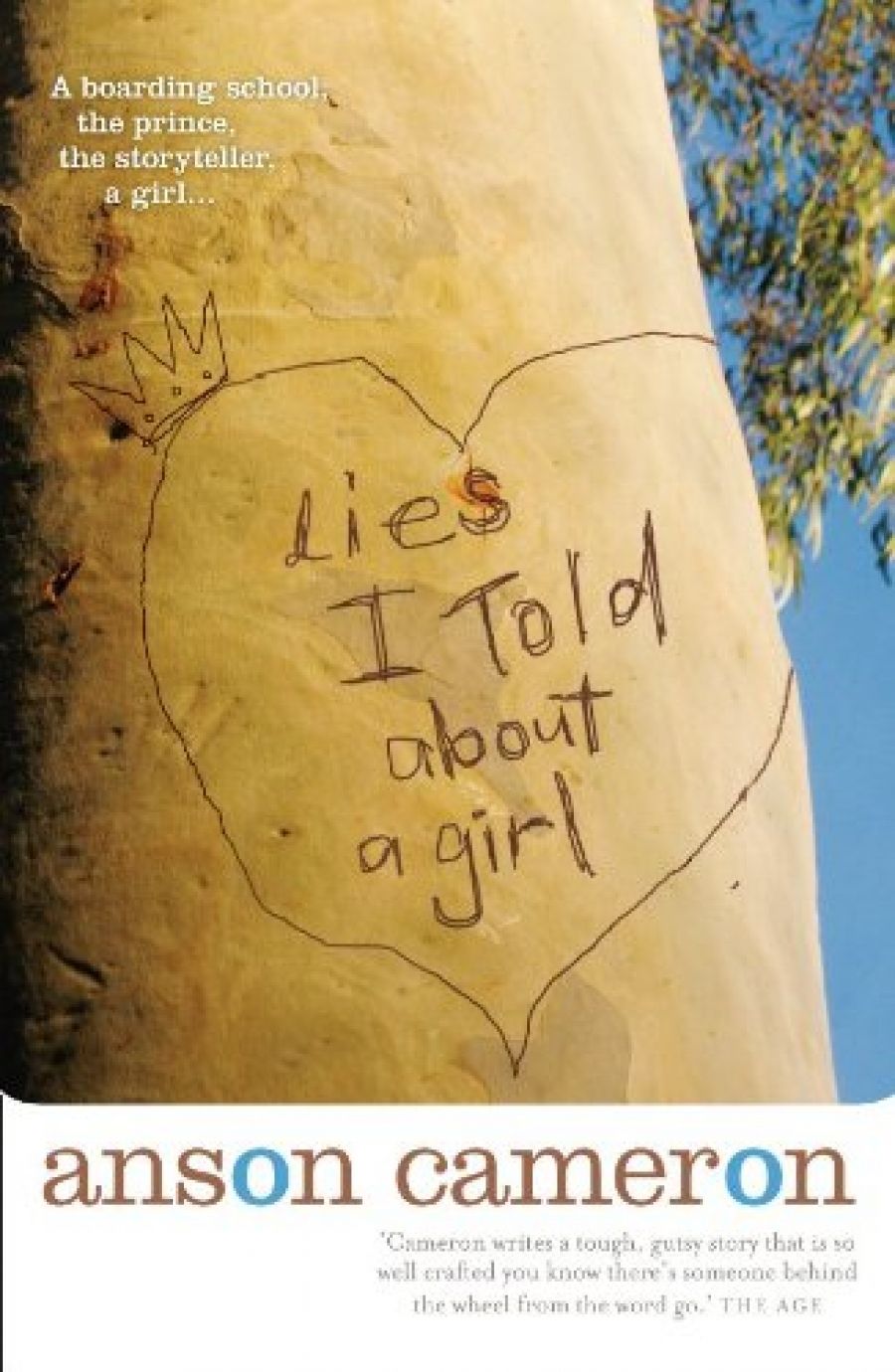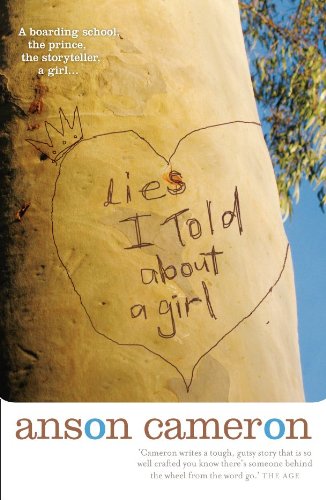
- Free Article: No
- Contents Category: Fiction
- Review Article: Yes
- Online Only: No
- Custom Highlight Text:
Anson Cameron’s Lies I Told about a Girl may not bend the public record enough to qualify as ‘alternate history’, but it does take off from an intriguing speculative premise. What if the young Prince of Wales, sent ‘down under’ for a term at an exclusive boarding school deep in Victorian logging country, had arrived in 1975, the year of the Dismissal? And what if the prince – known here as Harold Romsey, or YR (‘Your Royal’) – had become romantically involved with a fellow student who happened to be the daughter of the federal opposition leader?
- Book 1 Title: Lies I Told About A Girl
- Book 1 Biblio: Picador, $22 pb, 276 pp
- Book 1 Cover Small (400 x 600):

- Book 1 Cover (800 x 1200):

Cameron is a competent writer, but Lies I Told about a Girl follows a familiar local recipe for the ‘literary’ novel: a yearning for big cultural statements, combined with all-Aussie male melancholy, purple descriptions of landscape and tongue-in-cheek asides. Still, the sentences are shorter and the plot more classically shaped than in some of Cameron’s earlier books, with all the ironies of the situation carefully underlined. Class divisions cut both ways: both YR and the scholarship boy who serves as narrator are essentially helpless, trapped in roles that prove stronger than their good intentions. Looked at objectively, the implications of the story are almost Marxist: the presence of YR, with his special status, leads to disaster for all concerned, though blame lies less with any individual than with a system that depends on preserving appearances. Cameron avoids ramming home the message: his tone of ironic fatalism suggests he is ultimately less concerned with politics than with the legacies passed on willy-nilly from one generation to the next. By these lights, recognising the unfairness of society appears to be simply part of growing up – but in reassuring us that life goes on, the book bypasses the sense of tragedy that might have made it memorable.


Comments powered by CComment